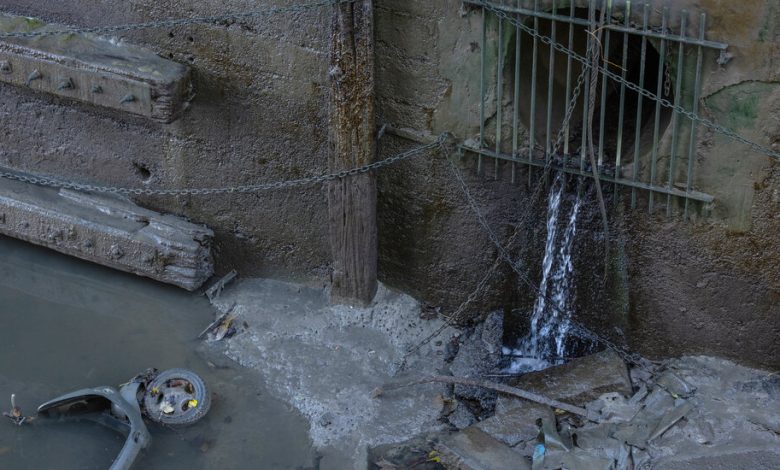England’s Water Companies Vow to Clean Up Their Sewage Dumping Act

England’s rivers and coastlines have long endured a foul problem — an astounding release of untreated sewage by water companies, some of it illegal, which critics say has sickened swimmers and polluted the country’s critical ecosystems.
“It’s disgusting when you’re in the water and you see and smell sewage,” said Josh Harris, a spokesman for Surfers Against Sewage, a charity that monitors pollution and is among several groups leading an intensifying public outcry against the contamination of England’s waterways.
Private water and sewage companies in England on Thursday admitted that they had not done enough to address the outpouring of sewage and announced a plan totaling 10 billion pounds, or about $12.4 billion, to modernize the country’s sewers.
Last year alone, the companies sent sewage into rivers and seas for more than 1.75 million hours, amounting to 301,091 spills overall, or an average of 825 a day, according to government data, a slight reduction compared with the previous year largely because of drier weather, not preventive action from water companies, England’s Environment Agency said.
“The message from the water and sewage industry today is clear: We are sorry,” Ruth Kelly, the chair of Water U.K., a body representing water companies in Britain, said in a news release, adding that companies were listening. “The public is right to be upset about the current quality of our rivers and beaches.”
The apology comes after actions in the past year by environmental regulators in England to hold water and sewage companies accountable. The regulators had been under pressure from activists who also accused them of not enacting harsh enough rules or enforcing existing ones around polluting limits.
Companies in England are allowed to dump untreated sewage only in exceptional circumstances, such as during intense storms that strain the Victorian-era infrastructure.
The government has promised to make changes, including introducing tighter timelines for when companies can release untreated sewage and higher penalties for breaking rules. Since 2015, regulators have brought legal action that has punished water companies with more than 144 million pounds, or about $178 million in fines, and in 2021, the Environment Agency began investigations that have placed more scrutiny on the companies’ dumping practices.
Government officials and regulators welcomed Thursday’s announcement and said they would work closely with water companies to ensure that they would make improvements. The plan applies only to England, because Wales, Scotland and Northern Ireland manage their own sewerage treatments. But residents in those nations have also pressured officials to combat waste spillages.
Though environmental groups and experts called the apology a start, they questioned why water companies had been allowed to dump so much sewage for so long and why customers would have to pay for the increased investment.
“This is not a show-off moment,” said Darren Reynolds, a professor of health and environment at the University of the West of England in Bristol, adding that the apology came after the water industry had repeatedly denied that there was a problem. “We’re talking about meeting a minimum level of competence.”
Private water companies, looking to maximize costs for their shareholders, had shirked their responsibility and regulators had failed to effectively do their jobs, he said, partly because of chronic underfunding. Still, the situation represented a systemic failure at a time when the effect of pollution on waterways could have longer-term ramifications for the future ecology.
“It’s not just falling asleep at the wheel for a bit,” Professor Reynolds said. “We’ve been actively destroying our water environment.”
Even with the apology, it was difficult to trust that the new plan amounted to actual change said Mr. Harris, the spokesman for Surfers Against Sewage, who said the current limits on water companies did not go far enough.
“They’ve overseen decades of mismanagement of our sewerage network, all the while siphoning off tens of billions to shareholders,” he said.
Water U.K. said on Thursday that investors would front the costs first, and that investment would be paid back “in modest increments each year” through water bills. But the country needed a long-term plan to revolutionize its management of water systems, Professor Reynolds said.
“If we’re talking about making the world a cleaner and healthier place, this is quite devastating,” he said, adding that England was behind the curve in water innovation. “You have to lead by example — and we clearly haven’t.”
